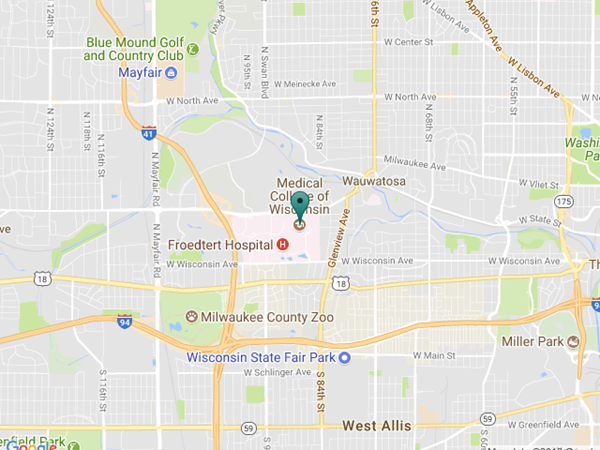The MKE Health Scholars Program
A place-based leadership and workforce development program at the Medical College of Wisconsin School of Medicine.
The MKE Health Scholars Program (MHSP) is a four-year, longitudinal leadership and training track designed to prepare and retain physicians who will practice in the City of Milwaukee. The program supports medical students academically, financially, and personally while cultivating a deep connection to the communities they will serve.

Our Mission
Why This Program Exists
What Makes MHS Different
Financial Support
All scholars receive:
- Full tuition scholarship to MCW–Milwaukee
- Housing and living stipends supported through philanthropy
Leadership Training
- Scholars develop the skills to serve Milwaukee residents through:
- Deep connection to Milwaukee’s neighborhoods and history
- Firsthand knowledge of community assets and recreational spaces
- Social and professional network building across the city
- Structured leadership development throughout medical school
Psychosocial Support
MHS is a high-expectation, high-support program. Scholars receive:
- Training in self-compassion and emotional resilience
- Holistic mentorship from faculty and community mentors
- Biweekly group gatherings focused on reflection, connection, and skill-building
- A culture that normalizes seeking support while training to support others
Living-Learning Community
MHS is rooted at ThriveOn King, a mixed-use development and hub for community health and equity work.
- Three scholars live in the ThriveOn residences
- Program offices and seminars are housed in the same building
- Scholars’ lived experience and learning environment are intentionally integrated
- Students build relationships with community leaders, organizations, and clinical sites within walking distance
- This structure strengthens students’ ability to counsel patients with local knowledge and connect them to real resources.
Meet Our Cohort
MCW’s first MHS cohort began in 2024 with an intentional focus on addressing Milwaukee’s physician workforce needs. Scholars are deeply engaged in the community, thriving academically, and stepping into leadership roles across campus and clinical settings.
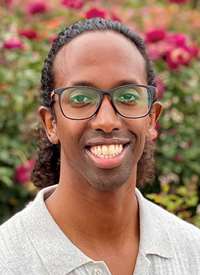
Gani Ali
MKE Health Scholar, Class of 2028
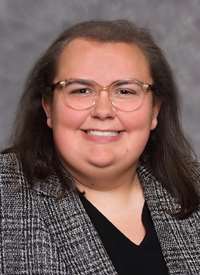
Ciara Ayala
MKE Health Scholar, Class of 2028

Alex Rafael Martinez Colindres
MKE Health Scholar, Class of 2028

Miracle Powell
MKE Health Scholar, Class of 2028

Dalicia Simpson
MKE Health Scholar, Class of 2028
Words From Our Students
Each HESP scholar brings unique perspectives and passions to MCW. Learn more about motivates them to make a difference in the community they will serve.
"I am truly excited about the community asset that the ThriveOn building will become. It will offer a chance to interact and reside with the residents of Bronzeville, which will help us gain a better understanding of their health care needs. This will enable us to take the necessary steps to improve health equity within Milwaukee."
Ciara Ayala, '28
Being able to learn and grow with, and within, my community throughout my medical school journey is what appeals to me the most. I am excited to be able to come back home to Milwaukee and serve the communities that have contributed to my growth. Gaining hands-on experience in engaging with and serving underrepresented/underserved communities early in my medical career will undoubtedly refine my skills and abilities as a holistic, understanding physician by the time I complete medical school.
Dalicia Simpson, '28
I am so blessed to have been raised by my father and grandmother who did everything to ensure that I was safe and lived a fulfilling life. I know that my grandmother is close and will be with me every step of the way as I grow through this new chapter of life.
Miracle Powell, '28
I am passionate about learning as much as possible to impact my community positively. By meaningfully applying my knowledge and skills, I aim to make Milwaukee a place where everyone can live, grow, and thrive in good health.
Alex Rafael Martinez Colindres, '28
ThriveOn is going to positively benefit many lives and I am so grateful to be a part of that. I am excited to engage and connect with all who share the space.
Gani Ali, '28
Program Outcomes — Year One
In its first year, the MKE Health Scholars Program has demonstrated strong early impact:
- High demand: 116 applicants for 5 positions
- Scholars with deep Milwaukee ties and commitment to community health
- Improved well-being and resilience compared to national trends
- Strong engagement: high attendance by non-MHSP medical students at seminars
- Early clinical immersion in community-serving settings
- Recognition statewide for innovative workforce development model
The Planning Team
The program was designed through a year-long needs assessment led by MCW faculty, staff, students, and Milwaukee community leaders. Interviews, focus groups, and a comprehensive literature review shaped a collaborative, place-based approach to physician workforce development. The program is supported by generous grants from Advancing a Healthier Wisconsin Endowment and the Green Bay Packers Foundation, along with philanthropic support from the Greater Milwaukee Foundation, United Way of Greater Milwaukee & Waukesha County, and numerous individual and family foundations.

Genyne Edwards, JD
Founder & Partner, P3 Development Group
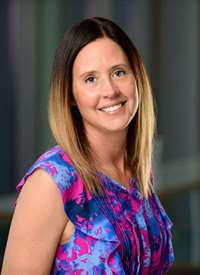
Catherine (Cassie) Ferguson, MD
Professor of Pediatrics; Director, Quality Improvement & Patient Safety Scholarly Concentration; Co-Director, Health Equity Scholars Program

Michael Levas, MD, MS
Professor of Pediatrics, Emergency Medicine

Joshua Parish, NRP, MSc, MPH
Assistant Chief - EMS, Training, & Education City of Milwaukee Fire Department
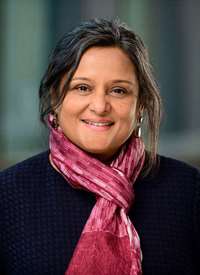
Devarati Syam, PhD
Program Manager, MCW
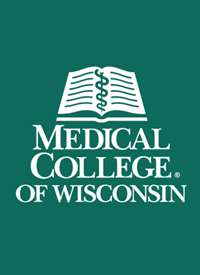
Omar Syed
Resident, Medical College of Wisconsin
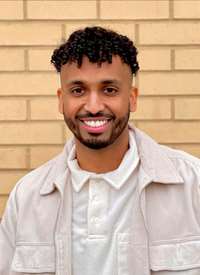
Egal Warsame
Medical Student; MPS Graduate
A Model for the Future
The MKE Health Scholars Program demonstrates that physician workforce development is not only about recruitment — it is about belonging, support, and connection to place. By investing in students holistically, we are building a generation of physicians prepared to stay, lead, and serve Milwaukee for decades to come.
If you are interested in learning more about the MHSP model, please reach out to:
Program Administrator
Keyauna Irby: kirby@mcw.edu.
Founding co-Directors
Dr. Mike Levas: mnlevas@mcw.edu
Dr. Cassie Ferguson: cferguson@mcw.edu
